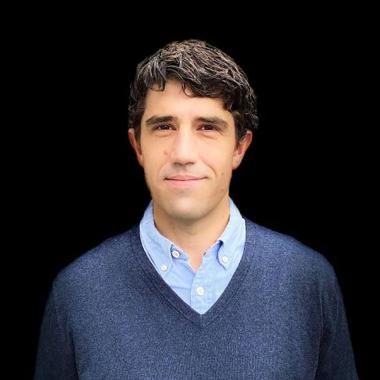‘Republican Internationalism: Latin America and the Making of the Modern International Order, 1861-1919’
Tom Long, Professor of Politics and International Studies, University of Warwick

Location
Westminster Forum, Fifth Floor, 32-38 Wells Street, London W1T 3UW
The event will take place in-person. If you have any questions, please email the seminar convener, Dr Jac St John, Lecturer in Politics and International Relations ([email protected]).
Event abstract
The late nineteenth century marked the beginning of the modern multilateral order, laying the foundation for the international system we see today. In response to new forms of communication and transportation, European powers and the United States institutionalized international law and diplomacy, creating the precursors to today’s international organizations. In the wake of the First World War, these states formalized and expanded this order, most notably through the League of Nations—or so the story goes.
We recenter this narrative, instead emphasizing Latin America’s place in the “transformation of the world.” In doing so, our account challenges the common notion that the Global North propagated a world order without the input or influence of the South. As the first group of states to emerge from colonialism, Latin America developed a republican vision. International order should be governed in accordance with self-determination and the rights of weaker states—a sharp contrast in a world of empires. Latin Americans’ own experiences of decolonization and intervention conditioned their international involvement, even as the region’s elites enacted similar “civilizing missions” on their own populations. When this inter-imperial order collapsed in the flames of the First World War, Latin Americans again pressed for a more equal order of states. In doing so, Latin American ideas and institutions shaped the development of global politics, but not always in the direction they desired.
This talk (and related in-progress book) draws on Tom’s research with Carsten-Andreas Schulz on the UK Arts and Humanities Research Council project, “Latin America and the Peripheral Origins of Nineteenth-Century International Order.” Related co-authored publications appear in the American Political Science Review, International Organization, Cambridge Review of International Affairs, and Foreign Policy, inter alia.
About the centre
The Centre for the Study of Democracy (CSD), established in 1989, is based in the School of Social Sciences at the University of Westminster. At the Centre, academics working in politics and international relations undertake socially engaged, methodologically diverse and often interdisciplinary research that aims to address a range of critical political challenges in relation to democracy worldwide.
CSD has a longstanding international reputation for research excellence through a programme of publications, events and collaborations with academics, practitioners, policymakers, and activists. Research in Politics and International Studies at CSD was ranked 4th highest in the UK for impact in the Research Excellence Framework 2021.
The Centre has established numerous collaborations with scholars and universities around the world and has hosted encounters with public intellectuals including Luc Boltanski, Judith Butler, Stuart Hall, Bruno Latour, Richard Rorty, Quentin Skinner, Gayatri Chakravorty Spivak, Charles Taylor, James Tully, and Michael Walzer. The CR Parekh lecture, instituted by Lord Bhikhu Parekh, has included lectures by His Holiness the Dalai Lama, Arundhati Roy, and Ashis Nandy.
CSD recognises that responding to contemporary social and political challenges requires engagement beyond the academy, so actively welcomes dialogue and collaboration with researchers, practitioners, policymakers, and activists around the world. The Centre is directed by Professor Nitasha Kaul.
About the speaker

Professor Tom Long
Tom Long is Professor of International Relations at the University of Warwick and Profesor Afiliado in the División de Estudios Internacionales at CIDE, Mexico City. His research sits at the intersection of International Relations and History, and explores the dynamics of international asymmetries through topics related to US-Latin American relations, Latin America in the world, and small states in international politics. Tom is author of two books: Latin America Confronts the United States: Asymmetry and Influence (Cambridge University Press, 2015), and A Small State’s Guide to Influence in World Politics (Oxford University Press, 2022). He is editor, with Eric Hershberg, of North American Regionalism: Stagnation, Decline, or Renewal (University of New Mexico Press, 2023). His research has been published in leading journals in political science, history, and international relations, including the American Political Science Review, Past & Present, International Organization, International Affairs, World Politics, and International Security. Together, with Carsten-Andreas Schulz, Tom leads the UK Arts and Humanities Research Council grant, “Latin America and the Peripheral Origins of Nineteenth-Century International Order,” which has supported the research underpinning this talk.

